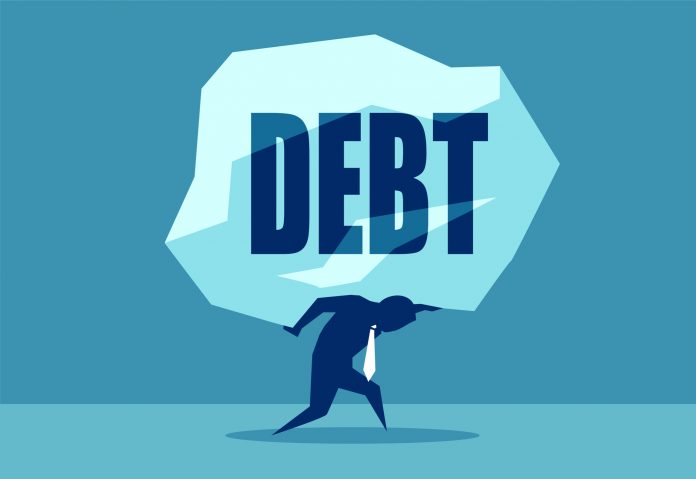(The Center Square) – The U.S. government remains on an “unsustainable fiscal path,” a watchdog told Congress on Tuesday.
“The balance of current revenue and program spending policies result in debt growing faster than the economy,” Jeff Arkin, director of the Strategic Issues Team at the Government Accountability Office, told members of a U.S. House of Representatives subcommittee on Tuesday. “This is unsustainable over the long term.”
Arkin said that rising debt could “increase borrowing costs for both the federal government and private borrowers and could slow economic growth.”
The cause: Budget deficits.
“The federal government has run a deficit in every fiscal year since 2002,” Arkin said.
U.S. debt held by the public is projected to hit its high of 106% of gross domestic product within 10 years. By 2051, the Government Accountability Office projects this ratio could reach more than 219% of GDP without changes in revenue and spending policies.
Arkin testified Tuesday before the House’s Subcommittee on Financial Institutions and Monetary Policy.
U.S. Rep. Bill Foster, D-Ill., said comparing debt to GDP was like comparing “apples to horsepower.” He said debt should be measured against household wealth. U.S. household wealth was $147.71 trillion in the fourth quarter of 2022, according to the Federal Reserve. U.S. gross domestic output was $26.14 trillion in the fourth quarter of 2022, according to the Federal Reserve Bank of St. Louis.
The hearing comes after President Joe Biden and U.S. Speaker Kevin McCarthy, R-Calif., brokered a dealto suspend the nation’s debt limit until Jan. 1, 2025, cap non-defense spending, limit defense spending increases and expand work requirements for some people receiving food stamps, among other things.
Foster called the hearing and the U.S. debt limit a farce.
“We are very far from bankrupt as a country and as a result, this whole exercise we go through is a gigantic waste of everyone’s time,” he said.
U.S. Rep. William Timmons, R-S.C., said Congressional spending was out of control. He said Greece’s debt crisis hit when its debt-to-GDP ratio was at about 180%.
“We’ve created a system that’s unsustainable,” Timmons said. “The largest drivers are off limits. We just had a debt ceiling fight and we only discussed 11% of the budget. We didn’t discuss health care, where we have the highest obesity rates, the worst outcomes of any developed countries and we spend three times the amount per capita.”
Timmons said he wanted to know at what point the U.S. debt-to-GDP ratio would become a problem.
Grant Driessen, a specialist in public finance from the Congressional Research Service, said it is difficult to answer that question with precision.
“What we can say with certainty and which is shown in the projections, is that you are spending more and more, devoting more and more a portion of your present budget to interest spending, so essentially paying off past choices,” Driessen said. “This is something where the field of economics is pretty unhelpful at identifying the exact number.”
Driessen said that while Greece’s debt crisis hit at 180% forcing austerity measures, Japan’s debt-to-GDP ratio was much higher at 260%.
“That’s certainly a country that we’re looking at, the demographics, their structure is certainly of interest,” Driessen said.
In May, the Government Accountability Office released a report that found that large annual budget deficits drive debt growth and growing interest costs eat up a larger share of total spending. In fiscal year 2022, 92% of federal spending went to programs and 8% went to net interest costs. Without changes, interest costs would account for 26% of spending in fiscal year 2051 and 48% in fiscal year 2096, according to the GAO report.
Originally published by The Center Square. Republished with permission.
For more from Budget & Tax News.
For more public policy from The Heartland Institute.











